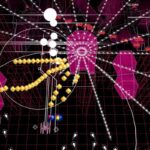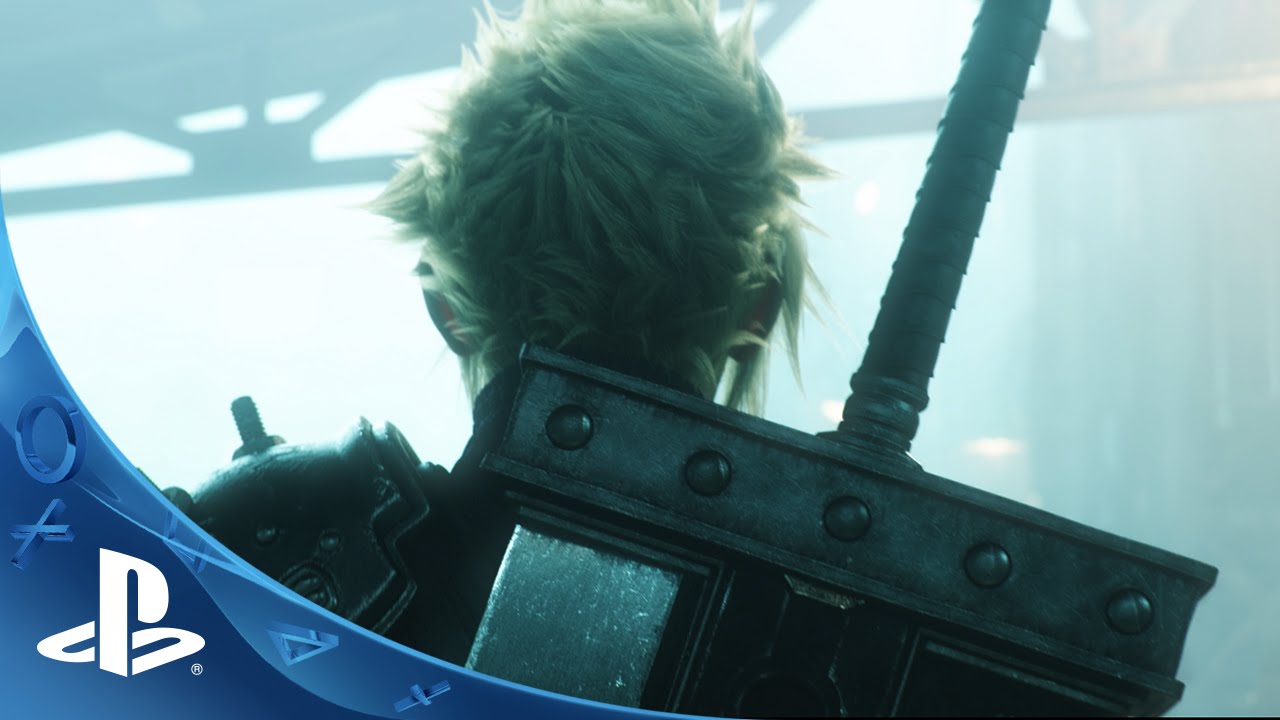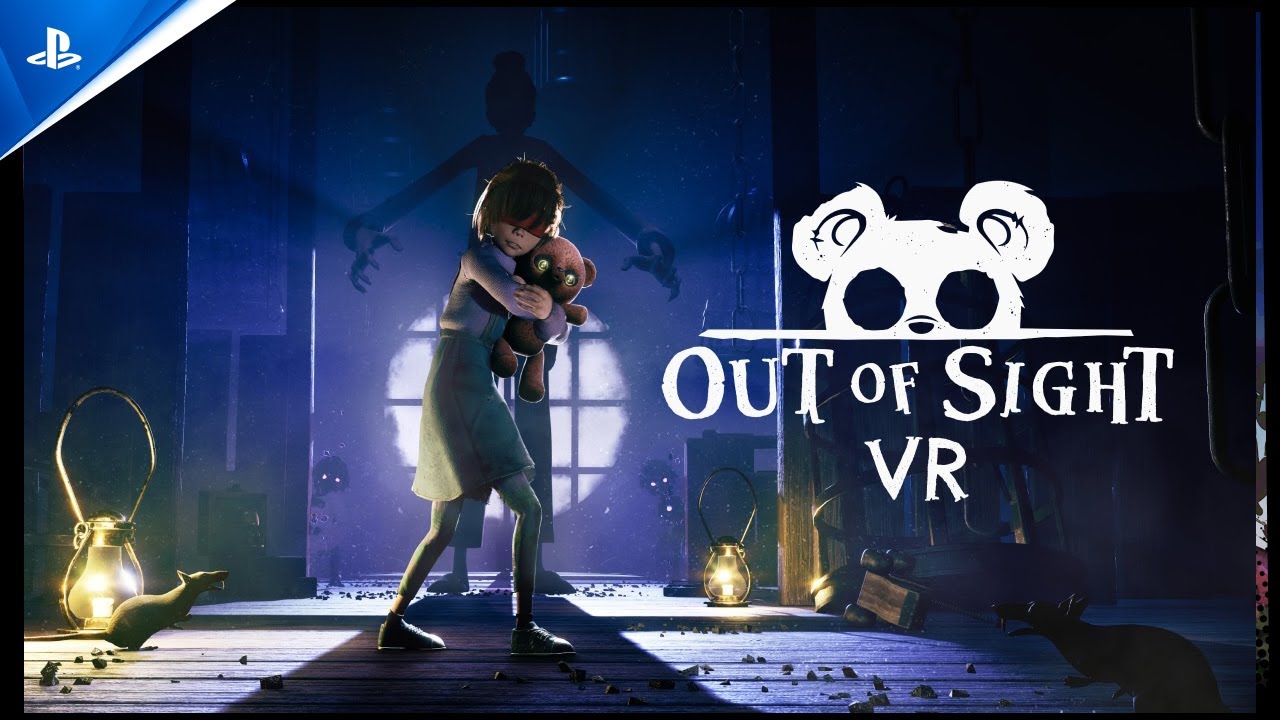Reimagining gaming icons is no easy task. Yet two decades after fans said goodbye to Final Fantasy VII’s cast as the original game’s credits rolled, came a welcome reunion. And since that initial tease, Square Enix has introduced us to the ‘Remake’ versions of the likes of Cloud, Barrett, Tifa, Aerith and Red XIII. All were welcomed with open arms.
And one of the biggest characters (literally) benefiting from the added graphical heft PS4 and Unreal Engine provides is Midgar. A spot you may have been exploring yourself this week in the newly released demo.
Even back in 1997 and exploring barely a fraction of its entirety, the city left an indelible mark. From the filth-ridden slums that devoured its underside to the towering presence of the Shinra headquarters at its centre, the place felt tangibly real.
The Remake’s recently unveiled opener showcased much which had been left to our imagination in the original version. Flying between skyscrapers and into the streets below, we glimpse not only the daily lives of Midgar’s inhabitants, but gain a sense of how extensive Square Enix’s changes are. The steampunk-influenced city-state is now fully-realized.
And with that sequence’s promise of the expanded, yet familiar, Midgar that awaits for us all to explore on 10th April, we sat down with producer Yoshinori Kitase and co-director Naoki Hamaguchi to walk us through its key scenes and talk about the design decisions the studio has made when rebuilding this iconic city for PS4.
1. Beyond the Wasteland
The opening scene is completely different from the original, giving us a bird’s eye view (literally) of the area surrounding the city. One that’s devoid of life. I ask if this is an early nod to one of the story’s central themes: planetary devastation due to industrialization. Kitase acknowledges that was one reason. “We didn’t want to go over the top with it,” says the producer. “But there is very much the nuance that [Midgar] is damaging the surrounding area.”
2. Advent Children references
We then spiral into a gleaming, sun-kissed metropolis. A side of Midgar we’ve not seen since 2005 movie Advent Children. Did the studio use any reference material from the game’s subsequent tie-ins or did it start afresh?
“We did refer to Advent Children and other previous series’ work when rebuild Midgar,” explains co-director Naoki Hamaguchi. “But one of the main things we actually set out to redo was the scale of the city itself. The original wasn’t that realistic if you consider the size of the individual buildings and how big they were in comparison to the overall city. It was quite condensed; we really set out to make Midgar realistic. The size between the buildings, the density… that’s one of the big things we set out to change.”
3. City-building logistics
So does that mean the studio has a fully-designed topographical map of Midgar? Sort of, according to the co-director. “We haven’t done it all to the same quality or same level of detail as the actual areas you do get to visit in the game, but we have mapped out the entire city and what’s in each of those areas.”
But that hasn’t stopped the team answering an important theoretical question: could the city’s design work for real? “You know the structure of Midgar; you’ve the big central pillar, and each sector is supported by its own sub-pillar,” continues Hamaguchi. “We worked out the right size and construction, how big those pillars would need to be to physically support the weight of the plate on top of them. Also the honeycomb structure of the pillars and where the tunnels would have to go for it to still work as a physical structure.
“That has all been mapped out and we understand quite a lot of detail about the realities of how Midgar would be constructed as a city.”
4. Everyday life in Midgar
Yoshinori Kitase: “We really wanted to show the everyday lives of Midgar’s citizens. [Partly] to show how they lived in this massive city powered by Mako energy, how and when they’d be using it, to tell that aspect of the story.
“The original version went straight into the bombing mission. We wanted that feeling that things were already underway, you were in the middle of the action. Yet if you immediately went from there into the panic caused by the bombing mission afterwards, you wouldn’t understand the impact it had on the inhabitants’ everyday lives before that event interrupted them. That’s why we started with this domestic kind of scene.”
5. Architectural digest
Gleaming skyscrapers give way to smaller buildings made of brick. There are glimpses of construction work as we get to street level. A city constantly expanding, building on itself, building over its history. “The idea is that the city is being built from the center outwards,” says Kitase. “You can also sense the different architectural styles as you go out from the central pillar, with high-rises on the city edge. We’ve put quite a bit of effort into making you feel like it is modernizing as the city builds outwards.”
6. A downtrodden playground
A familiar sight to those who have poured over 2015’s announcement trailer, the playground serves as a storytelling tool to distinguish the economic inequality between Midgar’s citizens. But not just between those living on the plates and those in the slums underneath. “Within each sector you’ve got the difference between rich and poor. Each plate is its own city,” states Hamaguchi. “There are some areas within those that are older, beaten up. The playground is used to show there are downturned areas that aren’t so well off in the city areas too.”
7. A city’s lifeblood
Yoshinori Kitase: “Up to [this point in the opener] we’ve seen the benefits of living with Mako. It supports people’s comfortable lifestyle in the city. But the depiction here of the Mako reactor turning on is that it’s not all sunshine and rainbows; there’s a darker side to Mako as well.”
8. A flower girl
A callback to the original’s iconic opening scene appears some two minutes into Remake’s version. “I felt that it was a great transition,” says Kitase simply of the new version, as we swoop from the Mako-touched skies above the reactor to an alley and Aerith’s debut.
9. A walk down Loveless Street
A pan out brings us to the entertainment hub of Midgar, Loveless Street, complete with cinemas and other venues. We note its proximity to Reactor No.1, your actions in which will shortly devastate this peaceful district. “The player gets to see how the [Reactor bombing] impacts the city,” Hamaguchi explains. “We want them to feel conflicted about the effects of their actions. That’s why we depicted this area in such detail.”
10. A beacon of industry
In Remake, Shinra’s headquarters is relatively untouched. At least on the outside. “We didn’t want to mess with the outer form of the building, because it could really affect people’s memories of what Midgar should look like. The inside though, like the floor structure, has seen major rearranging.” Hamaguchi remains tight-lipped on specifics though. “It’s something we want players to discover when they’re inside.”
11. A city of many experiences
Naoki Hamaguchi: “The core concept we worked on was that the player must be able to experience Midgar for themselves. Each individual location within has distinctive concepts and personalities. There’s a different style of gameplay experience waiting in each one of them.”
12. Lighting supplied by Unreal Engine
Naoki Hamaguchi: “We’ve used new tech to enhance the game’s lighting, to make the city of Midgar feel as real as possible. A network of over 100 synced PCs do copious physics simulations, calculations to work out the exact realistic reflection and how the lighting beams will bounce off any object in the game. Through doing that we managed to create amazing atmospheric lighting for the city.”
What do you think about the reinvented Midgar? Leave your impressions of what you’ve seen in the demo thus far in the comments below!










